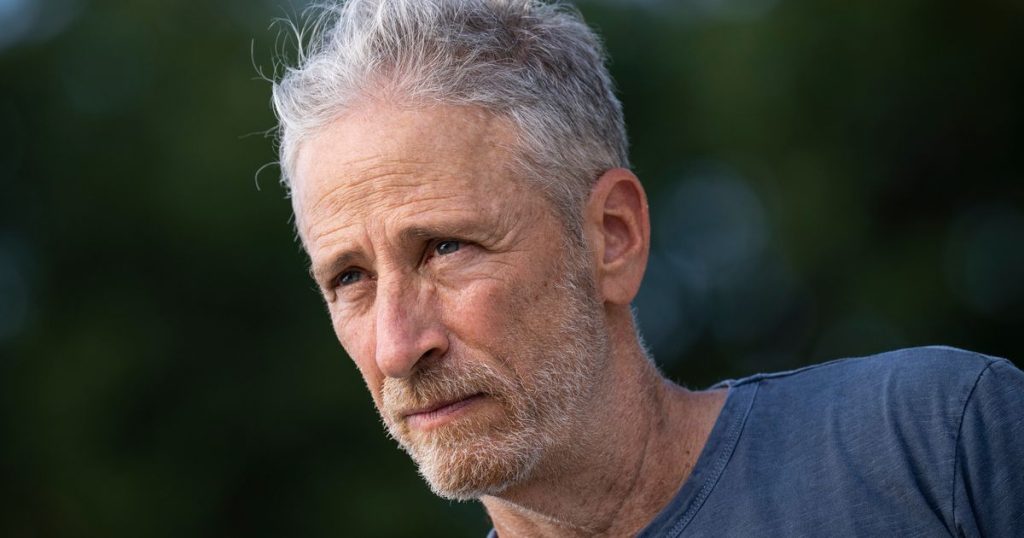Jon Stewart recently criticized the Labour Party of the U.K. Parliament for suspending Labour candidate Faiza Shaheen over a tweet that linked to a 2014 “Daily Show” segment about Israel. Stewart called the decision the dumbest thing the U.K. has done since electing Boris Johnson. Shaheen, an economist endorsed by actor Hugh Grant, joined Labour in 2015 and gained popularity in London’s Chingford and Woodford Green constituency in 2018. After weeks of door-to-door campaigning, she was informed via email that the Labour Party had suspended her after the Jewish Labour Movement flagged her social media activity as potentially antisemitic.
Shaheen had “liked” a tweet that linked to the “Daily Show” clip, in which Stewart was repeatedly shouted down by colleagues representing impassioned defenders of Israel and Palestinians. The tweet, shared by Substack writer Philippe Lemoine, criticized the reaction of people to any criticism of Israel, suggesting they were mobilized by professional organizations. Shaheen acknowledged on “BBC Newsnight” that the tweet played into antisemitic tropes, causing her shock and distress over the suspension. She had recently given birth and returned to campaigning despite having had a C-section, only to have the news of her suspension disrupt her efforts.
This incident is part of a larger trend of public figures facing backlash and accusations of antisemitism over statements related to Israel and Palestine. Last year, actress Melissa Barrera was fired from a project after making pro-Palestinian statements, while director Jonathan Glazer faced criticism for condemning Israel’s bombing campaign in Gaza. These controversies highlight the sensitive nature of discussions surrounding Israel and Palestine, with any criticism often leading to accusations of antisemitism. The case of Faiza Shaheen serves as a reminder of the challenges faced by public figures in navigating this complex and divisive issue without being accused of prejudice.
Jon Stewart’s condemnation of the Labour Party’s suspension of Faiza Shaheen reflects broader concerns about the stifling of legitimate criticism of Israel. Stewart’s response to the news of Shaheen’s suspension was forceful, criticizing the decision as one of the worst actions taken by the U.K. since the election of Boris Johnson. The incident has sparked a debate about the boundaries of acceptable discourse on Israel and Palestine, with many expressing concern that legitimate criticism is being silenced under the guise of combating antisemitism. The case has raised questions about how to navigate discussions of highly polarizing issues without running afoul of accusations of bias or prejudice.
Faiza Shaheen’s experience with the Labour Party’s suspension raises questions about the line between legitimate criticism and antisemitism in discussions surrounding Israel and Palestine. The reaction to her “liking” of a tweet linking to a satirical “Daily Show” segment highlights the sensitivities and complexities surrounding the issue of Israel. Shaheen’s acknowledgment of the problematic nature of the tweet and her shock at being suspended despite her dedication to her constituency and recent childbirth underscore the personal toll that such controversies can take on public figures. The incident serves as a cautionary tale about the challenges faced by individuals in navigating the minefield of Israel-Palestine discourse in an increasingly polarized and fraught political environment.


